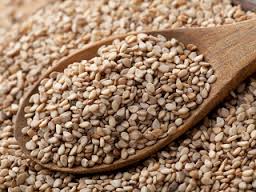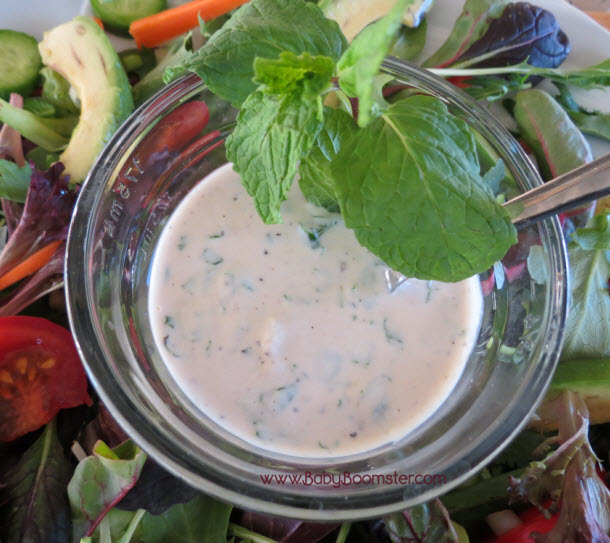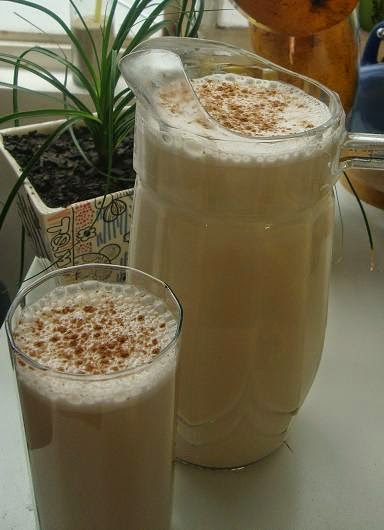Sesame (Sesamum indicum) is considered the oldest cultivated oil seed plant in the world. Charred remains of sesame in archeological sites date back to 3,500 BC. That’s more than 5,000 years! An important food source in Babylon, Assyria and ancient Turkey, sesame was also documented for its significant therapeutic benefits.
In fact, the Egyptian Ebers Scrolls from 3,600 years ago listed sesame in its compilation of medicinal drugs. It is told that women of ancient Babylon would eat sesame seeds with honey to prolong youth and beauty and that Roman soldiers would eat a sesame mixture for strength and energy.

Sesame seeds have an exceptionally high calcium and magnesium content, are rich in healthy essential fats, B vitamins and minerals including iron, manganese, phosphorous, sodium, copper, potassium and zinc. With 25% carbohydrates and 17% protein, it’s no wonder Roman soldiers relied heavily on this energy powerhouse. Sesame has just as much a place at the kitchen table as it does in your home medicine cabinet and here are some reasons why.
High Blood Pressure and Diabetes
Sesame seed oil has beneficial effects on hypertensive patients that take diuretics or beta-blockers. By using sesame oil in place of all other dietary oils, systolic and diastolic blood pressures normalized and lowered blood sugar levels in diabetic patients.1,2 This is in part due to properties in sesame oil that act as angiotensin I-converting enyme (ACE) inhibitors .
Atherosclerosis
Atherosclerosis refers to plaque deposits inside blood vessels leading to heart, brain and circulatory problems. Sesame seed oil prevents the formation of atherosclerotic lesions in mice fed an atherogenic diet.3 In other words; mice fed an atherosclerosis promoting diet, together with sesame experienced a reduction in atherosclerotic plaque lesions!
Gingivitis and Plaque
Sesame seed oil is well known for its use in the traditional medicine of India known as Ayurveda. It has been used for its oral health properties for thousands of years in a process called “oil pulling.” This involves swishing sesame seed oil in the mouth for up to 20 minutes in order to prevent teeth decay, halitosis, bleeding gums, dry throat, and for strengthening the teeth, gums and jaw. Recent clinical studies compare sesame oil used in this manner positively to chemical mouthwashes in improving plaque-induced gingivitis,4 and reducing Streptococcus mutans growth associated with oral plaque formation.5
Radiation Induced DNA Damage
The antioxidant properties of Sesamol, a lignan antioxidant in sesame, has been shown to protect against gamma radiation-induced DNA damage.6 Compared to melatonin, another powerful antioxidant, Sesamol was found 20 times more effective as a free radical scavenger.7
Hormonal Health
One 2006 study conducted in Taiwan and published in the Journal of Nutrition suggested that eating sesame seeds may benefit postmenopausal women by improving their blood lipids levels, antioxidant status, and possibly even their sex hormone status.8
Repairs Liver Damage
Sesame oil is rich in an anti-inflammatory lignan known as Sesamin. Sesamin not only is responsible for many of the health benefits listed above but also protects the liver from alcohol and drug damage.9 Studies from Taiwan and Japan show that sesame oil reduces oxidative stress in the liver and other studies demonstrate how sesame oil protects against the harmful effects of acetaminophen on the liver. Sesamin is responsible for maintaining intracellular levels of glutathione, a potent antioxidant that Acetominophen depletes.10,11 Glutathione also plays an extremely important role in protecting DNA.
The bioactive components of sesame seeds and sesame oil have significant effects on Cancer growth, Osteoarthritis, Multiple Sclerosis, Anti-biotic induced kidney damage and more!
Israeli Tahini Salad
1/3 cup whole ground tahini (sesame paste) – unhulled, unbleached is best
1 clove garlic – crush and mince
Bunch of parsley and dill – chop finely
1 lemon or lime
Water
Slowly mix water with the tahini until you get a watery smoothie type consistency. Add the lemon juice along with the parsley and dill. I like to add black and cayenne pepper to give it a little kick. This is great alongside a tomato/cucumber/mint salad, baked eggplant, a lentil dhal or veggies and rice. Great protein source, rich in carbs and healthy fats and gives tons of energy. One of my favorites is having baked slices of Hawaiian or Japanese sweet potato for dipping in tahini salad.

Horchata de Ajonjoli
This is a super refreshing drink made in Latin America from sesame seeds. Soak 1.5 cups sesame seeds in water for about 3 hours.
Drain the water off, then blend with water until smooth in a Vitamix or powerful blender. Add a teaspoon of cinnamon and a little maple syrup to sweeten. Nature’s protein shake, all plant based!

Disclaimer. The information represented in this article is meant to provide concepts from evidence based research. It is not intended to treat or diagnose any health condition. For appropriate treatment methods please contact your healthcare provider.
